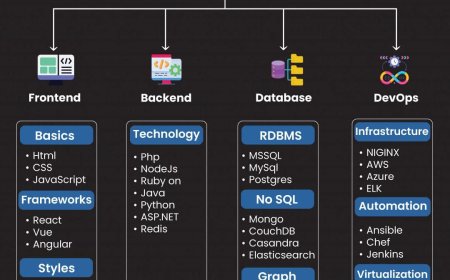FSSAI Registration in India: Ensuring Food Safety and Trust for Emerging Food Businesses

In a country as diverse as India, where food is more than just sustenance, it's a celebration of culture, taste, and tradition, the safety and quality of what we eat are of prime importance. As street food vendors, home-based kitchens, cloud kitchens, cafes, and large manufacturers alike serve millions every day, there's one common regulatory requirement that ensures food safety across the board:FSSAI Registration.
The Food Safety and Standards Authority of India (FSSAI) plays a crucial role in maintaining hygiene and safety in the Indian food ecosystem. However, for many small and medium food business operators (FBOs), registration is often viewed as just a formality. In reality, FSSAI registration is much more it's a mark of trust, a legal necessity, and a competitive edge in todays market.
What is FSSAI Registration?
FSSAI Registration is a 14-digit unique license or registration number issued by the Food Safety and Standards Authority of India, under the Ministry of Health & Family Welfare. This number must be printed on all food packages and is a sign that the food business complies with the Food Safety and Standards Act of 2006.
Depending on the size and nature of the business, FBOs are required to obtain either:
-
FSSAI Basic Registration
-
FSSAI State License
-
FSSAI Central License
Purpose of FSSAI Registration
The core objectives of FSSAI registration include:
-
Ensuring the food is safe for human consumption
-
Standardizing food quality and hygiene measures across India
-
Creating consumer confidence in food safety
-
Regulating unorganized food businesses
-
Preventing food adulteration and contamination
Who Needs FSSAI Registration?
Any individual or business involved in food handling, processing, manufacturing, packaging, storage, transportation, distribution, or sale must obtain FSSAI registration.
Examples of businesses that need FSSAI:
-
Restaurants and cafes
-
Street food vendors and hawkers
-
Home-based food kitchens
-
Online food sellers
-
Cloud kitchens
-
Catering services
-
Packaged food manufacturers
-
Grocery shops and retail outlets
-
Food transporters and storage warehouses
-
Sweet shops and bakeries
-
Exporters and importers of food items
Types of FSSAI Licenses
FSSAI Basic Registration
-
For very small food businesses
-
Annual turnover: Less than ?12 lakh
-
Example: Small home kitchens, street vendors, and petty retailers
-
Issued by: Local municipal authority
FSSAI State License
-
For medium-sized food businesses
-
Annual turnover: Between ?12 lakh to ?20 crore
-
Example: Restaurants, medium manufacturers, wholesalers, transporters
-
Issued by: State Government
FSSAI Central License
-
For large food businesses or those operating in multiple states
-
Annual turnover: Above ?20 crore, or for import/export businesses
-
Example: Large food manufacturers, exporters, importers, airport kitchens
-
Issued by: Central Government (FSSAI headquarters)
Step-by-Step Process for FSSAI Registration
The FSSAI registration process is now mostly online and can be completed in a few simple steps.
Visit the Website Go to the official FSSAI registration portal:
Fill out the Application Form Enter your name, mobile/email, business name, food category, type of business, and full address.
Upload PAN Card Attach a copy of your PAN card as identity proof.
Review and Submit Double-check all the details and click Submit.
Pay the Fees Pay online using UPI, card, or net banking. The fee depends on the license type and duration.
Verification Call An executive may call you to verify an OTP sent to your registered mobile or email.
Inspection (If Needed) FSSAI officials may visit your premises for inspection (mainly for State/Central licenses).
Get Your License Once approved, you can download your FSSAI license from the portal.
Documents Required for FSSAI Registration
PAN Card PAN card of the business owner or the company.
Passport-Size Photo Recent photo of the applicant (owner/partner/director).
Aadhaar Card or Address Proof Aadhaar, Voter ID, Driving License, or Passport as proof of identity and address.
Business Address Proof Rent agreement, electricity bill, property tax receipt, or NOC from the owner.
Business Constitution Certificate Partnership Deed, Incorporation Certificate, Shop Act License, or GST Certificate (as applicable).
List of Food Products Name and type of food items your business deals with.
Bank Account Details Copy of cancelled cheque or bank statement (optional for some categories).
Import Export Code (IEC) Required if your business imports or exports food items.
Manufacturing Unit Documents (if applicable) Plant layout, equipment details, water testing report (for manufacturing units).
Benefits of FSSAI Registration
Legal Compliance: Avoid hefty fines and legal issues by complying with FSSAI guidelines. It is mandatory under the Food Safety Act.
Consumer Trust: Displaying the FSSAI logo on packaging or shop boards builds credibility and trust with customers.
Market Expansion: FSSAI registration allows businesses to:
-
Supply to online food delivery platforms like Swiggy, Zomato
-
Export food products abroad
-
Sell in supermarket chains or food exhibitions
Quality Standardization: FSSAI guidelines encourage clean environments, safe practices, and regular inspections, improving overall business standards.
Funding and Loans: Banks and financial institutions give easier approval for food business loans to FSSAI-registered businesses.
Brand Value: Your brand is perceived as more reliable, professional, and standardized if FSSAI-certified.
Post-Registration Responsibilities
Once you have your FSSAI license:
-
Display it at your food outlet or on your product packaging
-
Renew it before expiry (renewal starts 180 days before expiry)
-
Maintain hygiene and storage standards
-
Be ready for food safety audits or inspections
-
Update the license in case of address or product change
Common Mistakes to Avoid
-
Choosing the wrong license type (Basic vs. State vs. Central)
-
Providing incomplete documents
-
Not renewing the license on time
-
Ignoring product labeling norms (e.g., batch no., expiry, FSSAI logo)
-
Selling outside the permitted product category
FSSAI and Digital Platforms: A New Era
Today, cloud kitchens, home chefs, and online sellers have grown rapidly, especially post-COVID. Platforms like Zomato, Swiggy, and Amazon mandate FSSAI registration to ensure consumer safety.
Also, QR-code-based FSSAI license verification helps customers instantly check the license validity, building transparency and confidence.
Note:- Now you can easily apply for Tatkal FSSAI Registration
Conclusion
In todays competitive food business landscape, FSSAI registration is more than just legal compliance; it's the starting point of building a responsible, trusted, and scalable food brand. Whether you're a small food truck operator or a fast-growing D2C food startup, the FSSAI number gives your customers confidence and your business credibility.
As food becomes increasingly commercialized and globalized, Indian food businesses need to prioritize safety, transparency, and trust, and FSSAI is the key.




































